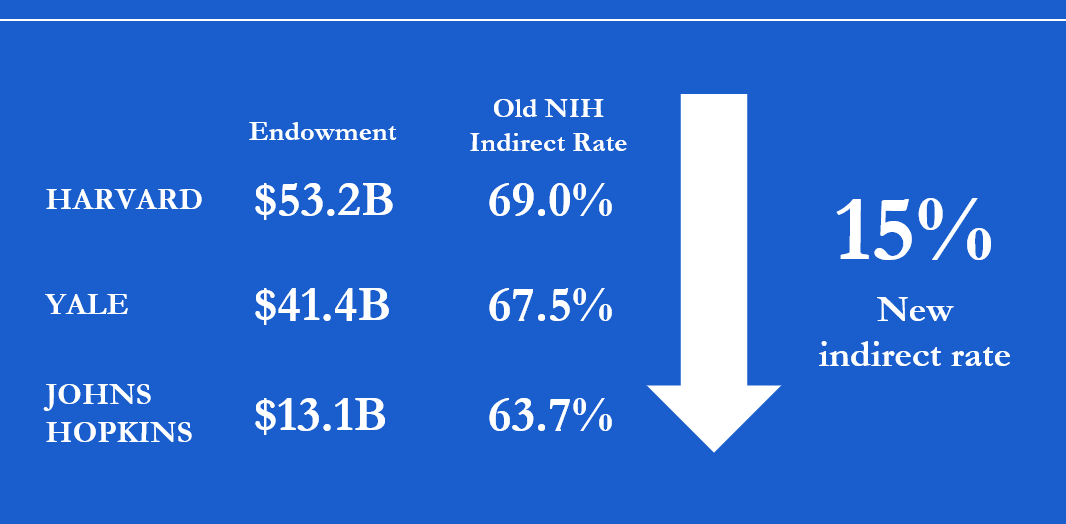
Arash Kheradvar, MD, PhD
@ArashKheradvar
Followers
657
Following
5K
Statuses
2K
University Professor, cardiovascular scientist/engineer, passionate about cardiac imaging, cardiac devices & mitigating structural heart disease. Views are mine
Irvine, CA
Joined September 2013
@OmeyDaHomey @airdlab It is not supposed to be status quo. Their goal is to make universities run more efficiently.
1
0
0
@icanteatexcuses @airdlab Not less research, but less “other actives” than research and education, which are the pillars of the academic institutions. The ratio of administrators to faculty has skyrocketed in the past decade. This IDC cap will hopefully correct it.
2
0
2
@OmeyDaHomey @airdlab Not sure. Though we will see. My expectation is to keep the NIH budget similar to last year. The budget will be approved by congress in March. We will know then.
1
0
1
@airdlab The NIH budget is decided by the congress. I haven’t yet heard of a cut. If the indirect is capped at 15%, it means that there is over 40% more budget remaining. NIH won’t keep the money and will fund 40% more projects. This is an increase in research funding, not a cut.
6
0
7
In academia, we must respect the changes to the NIH indirect costs, reorganize, cost cut, and turn more efficient. Transparency in how the funds are spent is a must and scientists and universities should go above and beyond to regain the society’s trust in our science.
Last year, $9B of the $35B that the National Institutes of Health (NIH) granted for research was used for administrative overhead, what is known as “indirect costs.” Today, NIH lowered the maximum indirect cost rate research institutions can charge the government to 15%, above what many major foundations allow and much lower than the 60%+ that some institutions charge the government today. This change will save more than $4B a year effective immediately.
0
0
0
@DrPhiltill Why do you think that 15% is not enough to run the regulatory tasks of the NIH funded grants? Why do the institutions require over 50% of each funded grant to maintain the regulatory duties? How come these tasks are done smoothly for foundation funds at 15% IC or less?
1
0
3
@MunirGunesKutlu Please remember that the NIH IC is not charity to institutions. It is designed to solely support infrastructure to run the NIH funded projects smoothly. How much do you think is used to fulfill this purpose?
1
0
0
@JBarkerLab Please remember that the NIH IC is not charity to institutions. It is designed to solely support infrastructure to run the NIH funded projects smoothly. How much do you think is used to fulfill this purpose?
1
0
0
@DrContrexin @PattyMurray Do you know how much of it goes to other irrelevant UC units? Please remember that the NIH IC is not charity to institutions. It is designed to solely support infrastructure to run the NIH funded projects smoothly. How much do you think is used to fulfill this purpose?
0
0
0
@ClausWilke Glad that you had access to those in your institutions. Most institutions do not offer those via IC. The good news is that by cutting the IC, NIH can fund more projects, considering that congress does not cut NIH budget.
0
0
1
@brandimwynne @NutritionNerd @JasonSynaptic I think 18 years of experience in a tenured position is enough for me to understand how a University works with NIH. NIH submission costs cannot be charged to Direct cost.
1
0
1


